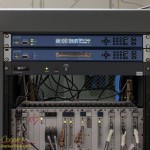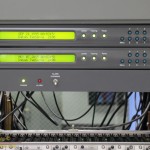Today will be 86,401 seconds long. That number may seem odd, particularly when you consider that most days are 86,400 seconds long. The difference is a result of the leap second being added to our clocks at the end of June 30, 2015 at 23:59:59.

Since zero hours universal time occurs at 14:00 Hawaii Standard Time, this extra second will occur at 2pm in the afternoon for my readers in the islands. If you are watching a clock that can account for this leap second you will see this second appear. The clock can do a few things, it could simply stop for a second, holding at 23:59:59 for two seconds. The clock could also count the extra second, displaying 23:59:60.
Update: A small group of true nerds gathered in the Keck 2 computer room at 0hUT today and watched our timeserver do leap second. The display notably remained at 23:59:59 for two seconds.
Generally only high precision time servers and GPS receivers will contain software to correctly implement the leap second. Most clocks do not correct for leap seconds, it is just not that important that this feature be implemented perfectly in most devices.
Network connected clocks will simply adjust the time on the next opportunity. Connected clocks routinely synchronize with an online time standard. Your computer requests the correct time via NTP protocol from an internet time server once each day, this is the usual default configuration for a net connected computer unless you have changed it. Cell phones get their time from the network and may receive their extra second more quickly, maybe within a few moments of the leap.
The rest of the clocks in your life are usually more than a few seconds off in any case.
Last time this occurred in 2012 there were some troubling software crashes around the world. Airline departures were delayed and some major websites went down. There is some concern that similar occurrences may occur this time. As a result some experts have argued to do away with leap seconds and just let the error accumulate. The argument rages and we may see leap-seconds abolished, in the meantime this one will occur.
Now that you know about it, enjoy your extra second today. Remember to watch that clock at zero hours universal time and see what happens.

